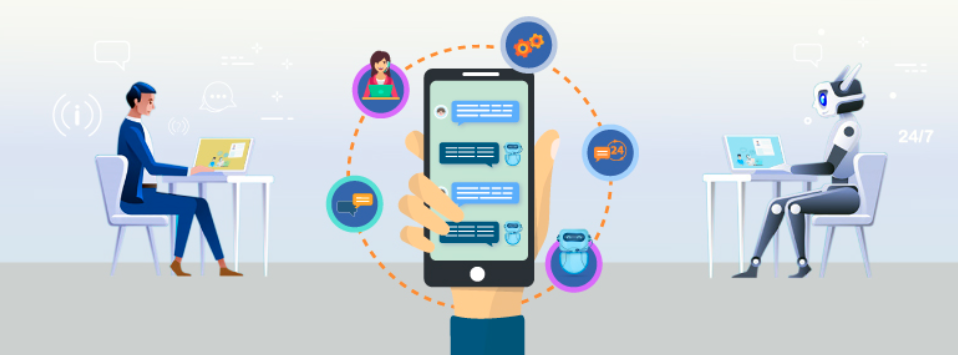Predictive AI: Unlocking Proactive Customer Service

Predictive AI helps businesses anticipate customer needs by analyzing behavior patterns. This proactive approach allows companies to address issues before they arise, improving satisfaction and retention. By personalizing services, predictive AI enhances the customer experience and reduces service delays.
Customer service is evolving at an unprecedented pace, and one of the most significant technological advancements driving this change is predictive AI. This powerful technology uses historical data, machine learning algorithms, and real-time analytics to anticipate customer needs and behaviors before they even occur. Predictive AI is unlocking new opportunities for businesses to provide proactive customer service, revolutionizing the way companies engage with their customers.
What is Predictive AI?
Predictive AI refers to the use of advanced algorithms and data analytics to predict future customer behavior or events. By analyzing historical data, such as past interactions, purchase patterns, and demographic information, predictive AI can forecast what a customer is likely to do next. This allows businesses to offer tailored experiences, address potential issues before they arise, and improve overall customer satisfaction.
Predictive AI combines data science, machine learning, and artificial intelligence to create models that can anticipate various aspects of the customer journey, enabling companies to take proactive steps in their customer service strategies.
How Predictive AI Works in Customer Service
Predictive AI works by gathering and analyzing vast amounts of data from various touchpoints. This data can include customer profiles, purchase history, web browsing patterns, social media interactions, and even sentiment analysis from past conversations. By processing this information, AI algorithms can identify trends and behaviors that are likely to repeat, allowing businesses to make informed predictions.
For example, predictive AI can identify customers who may be at risk of churning by analyzing factors such as frequent service issues, delayed payments, or lack of engagement. With this insight, businesses can proactively reach out to these customers with personalized offers, discounts, or interventions to prevent them from leaving.
Benefits of Predictive AI in Customer Service
Proactive Support: One of the most significant benefits of predictive AI is its ability to anticipate issues before they happen. For example, predictive AI can alert customer service agents when a product is likely to malfunction based on historical data or customer behavior. This enables businesses to address potential problems before they escalate into complaints, improving customer satisfaction and loyalty.
Personalized Customer Interactions: Predictive AI can analyze a customer’s past behavior, preferences, and needs to offer personalized experiences. By tailoring interactions, businesses can create more meaningful relationships with their customers, leading to higher engagement and satisfaction. For instance, AI can suggest products, services, or solutions based on previous purchases or browsing patterns, enhancing the overall customer experience.
Efficient Resource Allocation: Predictive AI can help businesses optimize their resources by forecasting demand and workloads. For example, AI can predict when customer service volumes will spike and allow companies to allocate the appropriate number of agents. This reduces wait times, improves service delivery, and prevents customer frustration.
Reducing Customer Churn: By identifying signs of dissatisfaction or disengagement early, predictive AI enables businesses to intervene proactively and prevent customers from leaving. Personalized offers, reminders, or check-ins can be used to re-engage customers and reduce churn, which is critical for maintaining long-term customer loyalty.
Cost Savings: Proactive problem-solving reduces the need for reactive customer service interventions, saving time and resources. By addressing issues before they become complaints, companies can avoid costly customer service inquiries and retain their customer base. Predictive AI also improves decision-making, allowing businesses to focus their resources on areas where they are most needed.
Real-World Applications of Predictive AI in Customer Service
Retail: In the retail industry, predictive AI is being used to forecast customer preferences and buying behavior. For example, AI can predict when a customer is likely to run out of a product and automatically send them a reminder or a promotional offer. Predictive models can also identify customers who are likely to abandon their shopping carts and send targeted messages to encourage them to complete the purchase.
Telecommunications: Telecom companies are using predictive AI to identify potential service disruptions or technical issues before they impact customers. By analyzing network data, predictive AI can forecast areas that may experience connectivity issues, allowing companies to fix the problem proactively and avoid customer complaints.
Healthcare: In healthcare, predictive AI helps with patient care by identifying individuals who may need specific medical treatments or check-ups. For example, AI can predict which patients are at risk of certain conditions based on their medical history, allowing healthcare providers to offer early intervention and personalized care plans.
Banking and Financial Services: Predictive AI is used by banks to detect fraudulent activity before it occurs. By analyzing transaction data, AI can identify unusual patterns and flag them for investigation, reducing the risk of financial loss for both the bank and its customers.
E-commerce: E-commerce companies are leveraging predictive AI to enhance their customer service offerings. AI can anticipate customer needs, such as restocking frequently purchased items or offering personalized recommendations. Predictive models can also forecast when inventory will run low, allowing businesses to replenish stock in time to meet customer demand.
Overcoming Challenges in Implementing Predictive AI
While predictive AI offers immense potential, its implementation does come with challenges:
Data Quality and Privacy: Predictive AI relies on vast amounts of data to make accurate predictions. Ensuring the data is clean, relevant, and up-to-date is essential for its success. Additionally, businesses must adhere to data privacy regulations and ensure that customer information is protected from unauthorized access or misuse.
Integration with Existing Systems: Implementing predictive AI requires seamless integration with existing customer service platforms, CRM systems, and data infrastructure. Companies must ensure that AI tools work effectively alongside human agents and other technologies.
Customer Trust: Some customers may feel uneasy about AI predicting their behaviors or preferences. To overcome this, businesses must clearly communicate the benefits of predictive AI and ensure customers that their data will be used responsibly and securely.
Continuous Improvement: Predictive AI models need to be continuously updated and refined based on new data. Businesses must monitor the performance of AI systems and make adjustments as necessary to improve accuracy and efficiency.
The Future of Predictive AI in Customer Service
The future of predictive AI in customer service looks promising. As AI technologies continue to evolve, businesses will be able to make even more accurate predictions, enhancing the proactive support they provide. The growing use of voice recognition, sentiment analysis, and advanced machine learning will enable even deeper insights into customer needs and preferences, further enhancing the personalization of services.
Moreover, the integration of predictive AI with other emerging technologies like augmented reality (AR), virtual assistants, and the Internet of Things (IoT) will create even more dynamic and interactive customer service experiences.
As predictive AI becomes more integrated into customer service strategies, businesses that adopt these technologies will gain a competitive edge by offering superior, proactive customer experiences. Customers will benefit from faster resolutions, personalized interactions, and a more seamless overall service experience, setting a new standard for excellence in customer service.
Conclusion
Predictive AI is transforming customer service by providing businesses with the ability to anticipate customer needs and address potential issues before they arise. Through personalized experiences, proactive support, and optimized resource allocation, predictive AI enhances customer satisfaction and loyalty. While challenges exist, the future of predictive AI is bright, with the potential to reshape customer service across industries. As businesses continue to embrace predictive AI, they will unlock new levels of efficiency, cost savings, and customer satisfaction, ultimately creating a more dynamic and responsive service environment.
Explore

Transforming Customer Support with Conversational AI

Choosing the Best Plumbing Service: Ultimate Guide

Business Cell Phone Service: All You Need to Know

Your Ultimate Guide to Choosing the Best Plumbing Service

Business Cell Phone Service: A Guide for All Sizes
Choosing the Best Roofing Service for Durable, Long-Lasting Protection
